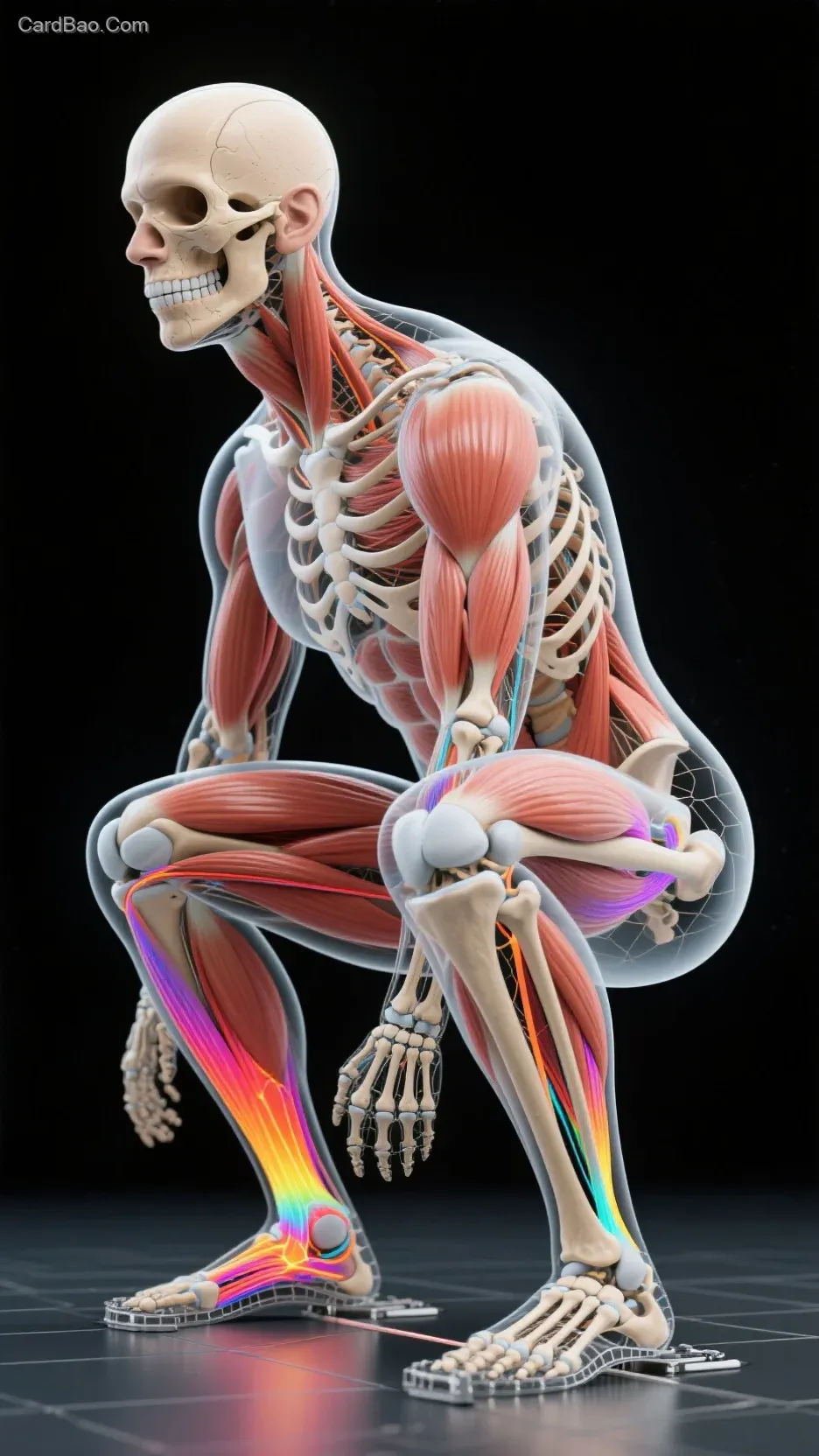
Human Muscle Structure
人体肌肉构造
English Prompt:
This image presents a detailed biomechanical analysis of human bones and muscles in a squatting posture using Finite Element Analysis (FEA) technology through ANSYS software. Below are the key features of the image:
**Model Construction:**
- Utilizes a transparent 3D skeletal and myofascial model reconstructed from medical imaging data (e.g., CT or MRI).
- High-quality mesh generation ensures analytical accuracy.
**Material Properties and Loads:**
- Accurate material properties for bones and muscles, including elastic modulus and Poisson's ratio.
- Applies external forces such as gravity and muscle contraction, with contact constraints set between the feet and the ground.
**Visualization of Analysis Results:**
- ANSYS post-processing functions are used to render stress distribution and force transmission pathways in vivid gradient colors.
- The image is in ultra-high-definition (UHD) format, with clearly visible skeletal and anatomical lines and refined details.
**Integration of Science and Aesthetics:**
- The analysis results are scientifically precise while the visual presentation is outstanding, combining both scientific rigor and aesthetic appeal.
- This image not only demonstrates biomechanical characteristics during a squat but also provides significant reference value for research and education through high-precision FEA and visualization techniques.
中文Prompt:
幅图通过ANSYS软件的有限元分析(FEA)技术,对深蹲姿势下的人体骨骼和肌肉进行了详细的生物力学分析。以下是图的主要特点: 模型构建:采用透明的三维骨骼和肌筋膜模型,基于医学成像数据(如CT或MRI)重建而成。模型的网格划分质量高,确保分析的准确性。材料属性与载荷: 骨骼和肌肉的材料属性设置准确,包括弹性模量、泊松比等。 施加重力和肌肉收缩力等外力,并设置了脚部与地面的接触约束。分析结果可视化: 利用ANSYS的后处理功能,以色彩鲜明的渐变色渲染应力分布和力的传导路径。 图像为超高清(UHD)格式,骨骼和解剖线条清晰可见,细节精致。科学与美学结合:分析结果科学准确,同时图像呈现效果出色,兼具视觉美感。这幅图不仅展示了深蹲姿势下的生物力学特征,还通过高精度的有限元分析和可视化技术,为研究和教学提供了重要的参考价值。
Resolution: 936×1664